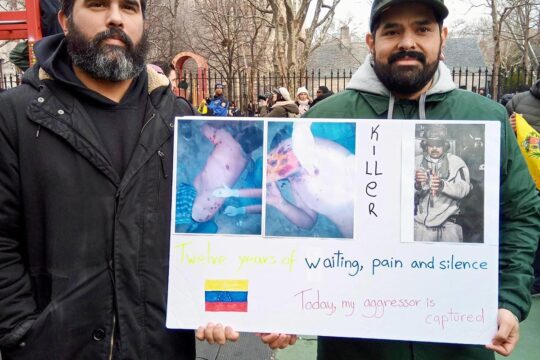A winter chill hung over the windswept cemetery in South Africa's eastern town of Cradock where the untended graves of four activists assassinated by the apartheid regime were watched over by a monument in their memory, itself in disrepair.
In the city of Gqeberha two hours' drive away, the murders in 1985 of the young men in one of the most notorious atrocities of the previous regime was the focus of an emotional courtroom inquest into the deaths.
Forty years on from the killings, the families of Fort Calata, Matthew Goniwe, Sicelo Mhlauli and Sparrow Mkhonto -- husbands, fathers, three of them teachers and one a unionist -- are still bereft and seeking answers.
"We are not going to rest in this matter up until there is some form of justice," Calata's son, Lukhanyo, told AFP in Gqeberha, an Indian Ocean city formerly called Port Elizabeth.
The 43-year-old journalist was barely in school when his father did not come home one night in June. His body was later found beaten, stabbed and burned with the others.
"I was pregnant and my hope was taken away... everything was taken away in such a brutal manner," his mother, Nomonde Calata, now in her mid-sixties, told the inquest.
Her third child was only born two weeks after her husband was buried. "I couldn't show the enemy my pain because they would laugh at me," she told the court, fighting back tears.
A first inquest was held in 1985 in Afrikaans, a language Nomonde did not understand, but did not identify the killers.
A second inquest in 1993 confirmed the security police were responsible but gave no names.
After the apartheid regime that enforced a brutal system of racial oppression ended in 1994, a Truth and Reconciliation Commission (TRC) into the atrocities committed during apartheid also heard the case of the Cradock Four.
Led by Nobel laureate Desmond Tutu, it found six members of a police hit squad were involved and denied them amnesty from further prosecution.
But there was no follow-up action and all six have since died.
Lukhanyo Calata was unsurprised that the apartheid authorities covered themselves for this killing, one of scores of government-ordered actions against people seen as threats to the apartheid system.
"They did everything that they could to protect themselves. We weren't actually expecting better from them," he said.
- 'Will not forgive' -
But this time he and the other relatives in the latest inquest are expecting more.
Relatives are allowed for the first time to give testimony, which is regularly broadcast live on national television.
The court has also visited the location where the four are believed to have been killed after being pulled off a road at night while driving back from a political event in Port Elizabeth.
Of the one former police officer who confessed before he died, Nomonde said: "He robbed me from the love of my husband, he robbed the children from the love of their father. I will not and did not forgive."
Besides wanting accountability, these families and many others who lost loved ones in apartheid-era killings want to know why there have been no prosecutions 30 years since the fall of the previous regime.
Delays may have been due to a "toxic mix of idleness, indifference, incapacity or incompetence" and even political interference, one of the families' lawyers said at the opening of the inquest.
President Cyril Ramaphosa set up a judicial inquiry in April into claims of deliberate delays in prosecuting apartheid-era crimes.
A separate court case by 25 families, including these ones, is seeking government compensation.
- Finding peace -
In the small and dusty town of Cradock itself, now called Nxuba, residents who knew the slain activists have watched the decades pass without answers and their sense of loss is still unresolved.
"I grew in front of those people," said Sibongile Mbina Mbina, in his late 50s. "Two of them taught me in high school, so I'm worried that this has not been solved."
"It's painful because it has been quite a long time," said Mawonga Goniwe, 65, whose uncle was among the Cradock Four. "We wanted closure as a family. How did our family member die?"
"The truth must come out... they must face what they have done," he told AFP who was in Gqeberha for the inquest.


